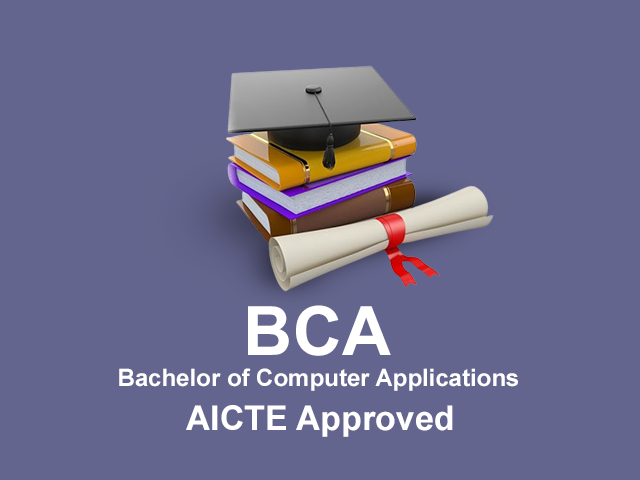- Home
- BCA
BCA
- BCA (Bachelor of Computer Application)
- Duration: Three Year
- Semester: Six
- Degree awarded by: Kolhan University, Chaibasa
- Scheme of Study: CBCS
Eligibility Criteria:
Candidates must have completed their higher secondary education (10+2) from a recognized board. They should have studied Mathematics as one of the subjects in their 10+2 curriculum. Some institutions may also consider candidates with Computer Science or Information Technology.
- Study Campus
PXVJ+3GG, Bijay, Saraikela Sini, PS : Saraikela Anchal, Saraikela-Kharsawan, Jharkhand, India
- Admission Office
- L Avenue Road, H.S. Tower, Near (Downstair of) Hyundai Showroom, 33, L Rd, beside KVC Showroom, Bistupur, Jamshedpur, Jharkhand 831001
- BSNL Exchange, 2nd & 3rd Floor, Garamnala, Opposite Rajender Vidyalaya Sakchi, Jamshedpur, Jharkhand

About The Course
A Bachelor of Computer Applications (BCA) is an undergraduate degree program that focuses on computer application and software development. The course is designed to provide students with foundational knowledge and practical skills in various aspects of computer science and information technology. BCA typically covers subjects such as programming languages, database management, software engineering, computer networks, web development, and information security. The program aims to equip students with the technical expertise and problem-solving abilities required for careers in the IT industry, including roles such as software developer, system analyst, database administrator, and network engineer.
The features of a Bachelor of Computer Applications (BCA) program include:
- Comprehensive Curriculum: Covers fundamental areas of computer science and IT, including programming, database management, software engineering, web development, and computer networks.
- Programming Languages: Instruction in various programming languages such as C, C++, Java, Python, and others, providing a strong foundation in coding and software development.
- Database Management: Training in database concepts, SQL, and database management systems like MySQL and Oracle, essential for managing and manipulating data.
- Software Development: Courses on software engineering principles, software development life cycles, and methodologies such as Agile and Waterfall.
- Web Development: Focus on designing and developing websites and web applications using HTML, CSS, JavaScript, and frameworks like Angular or React.
- Computer Networks: Study of network principles, protocols, and architectures, including hands-on experience with network setup and management.
- Information Security: Basics of cybersecurity, including data protection, cryptography, network security, and ethical hacking.
- Mathematics and Statistics: Courses in discrete mathematics, algebra, calculus, and statistics to support the computational and analytical aspects of IT.
- Practical Exposure: Emphasis on practical experience through lab sessions, projects, and internships to apply theoretical knowledge in real-world scenarios.
- Project Work: Final year projects that require students to develop complete applications or systems, integrating the skills and knowledge acquired throughout the course.



